Our sound is undoubtedly influenced in part by Tijuana and its essence of illusion – it is a city known for its nightlife and party side. We are aggressive people, but friendly at the same time. I think sometimes, it can be difficult to separate your inspiration from where you grew up.
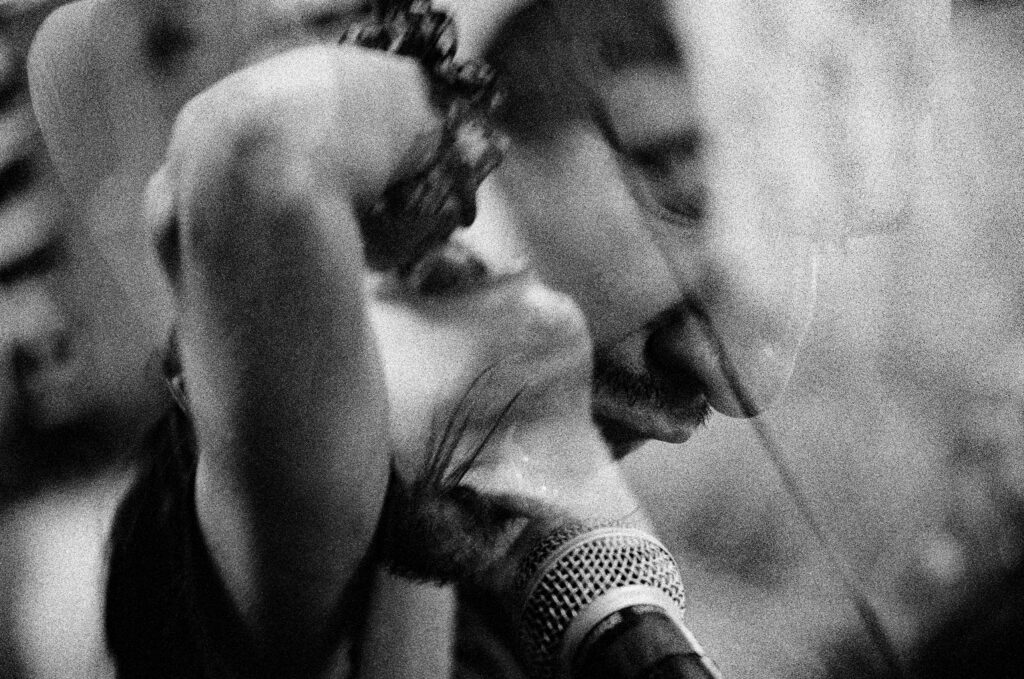
We are all from Tijuana and the four of us have been friends for several years. We decided to start a band together, without having any expectations about its future.
The scene is a mix of people not only from Tijuana and California, but also migrants from many other countries who have ended up here for ‘x or y’ reason. I think it can be a little divided, but large, if we consider that people from Tecate, Ensenada and San Diego often come to shows. Right now there are a couple booking agents/organizations, such as New Lords, Fuerza, Música Para tu Jefa and Colectivo de Odio, among others.
We have done well in the United States; from the beginning people have shown a good response to our music and to us as a band. I don’t know if they care much that we are from Tijuana specifically, but I can tell that being a Mexican band playing in their country is something that captures attention, and more so because our lyrics are in Spanish. Also, we use the phrase ‘Hardcore Radical Tijuanense’ to describe ourselves as a band <haha>, which was something we did more or less as a joke, but seriously. And people liked it, because it has an identity and that is something very essential in hardcore and punk.
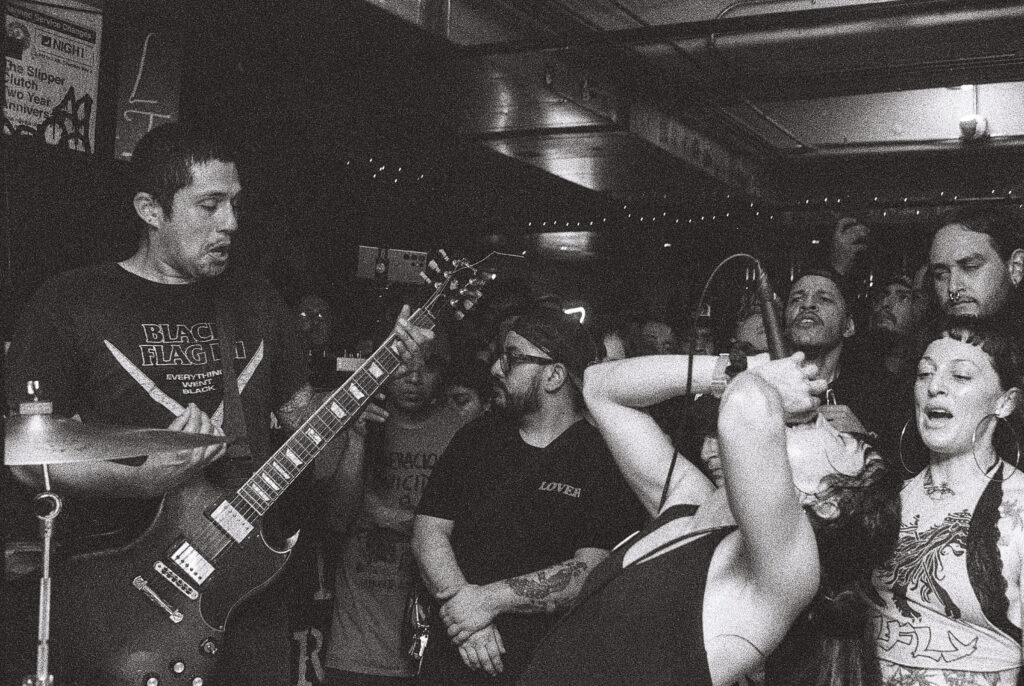
Getting to where we are has been a lot of work. We have invested a lot of our time, money, patience, and everything else you can imagine. I would dare to say that sometimes it feels like a second job because it requires a lot of responsibility and organization on your part, as well as knowing how to work collectively with the other members and with other bands. It’s not just getting up to play, it’s also planning rehearsals, tours, everything that involves having merchandise, making new designs, writing and composing, taking care of your physical and mental health to be able to give your best, among other things – balance all of this with your ‘real’ work and your personal life. But I don’t regret anything <haha>. You really get to a point where you find a way to do things yourself to make them happen, although I also suppose that sometimes (very rarely) opportunities can fall from the sky. The question is knowing how to take advantage of them.
I don’t know if I work harder, but I have had to assume my role, not only as a woman but also as a vocalist, and not let the environment where we operate intimidate me. Punk today is more inclusive than it was almost 20 years ago when I went to my first show, however, there are still certain ideas and stereotypes that have not been able to be completely separated from our spaces. And that unfortunately can (and has) ruined the fun for a girl like me who just wants to enjoy the show.
Funny things happen to me like people thinking that I’m just ‘the merch girl’ (and it’s funny because it’s happened to other vocalist friends too haha) to them telling me that I’m ‘sexist and stupid’ for not wanting to start a conversation with a stranger after our set at the bar counter where we played.
But hey, the joke is that we women are here and we will continue to be here.
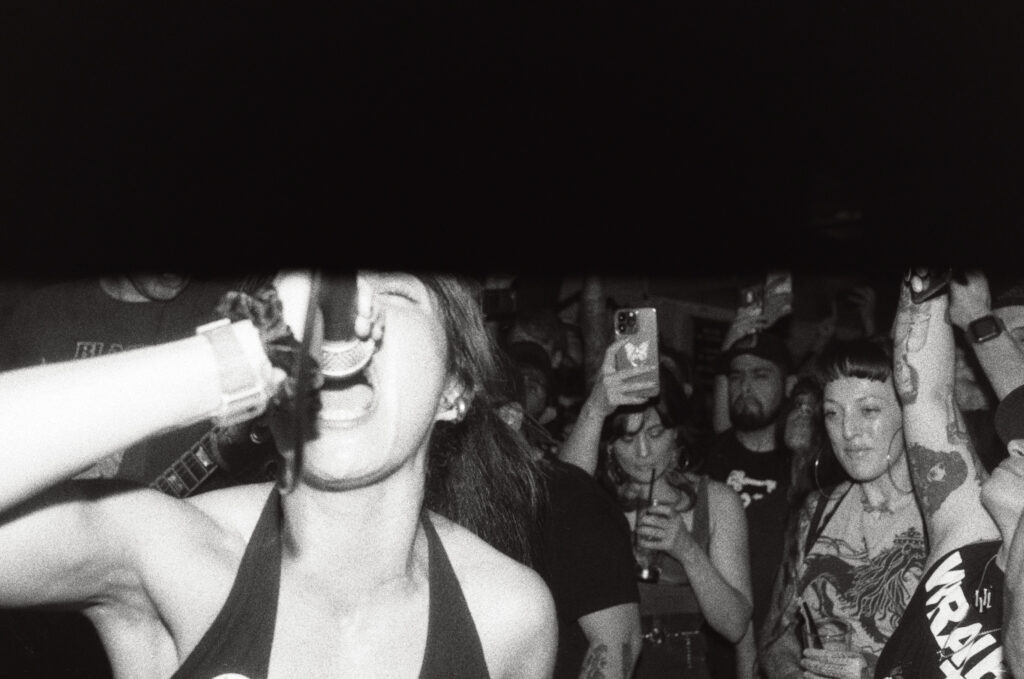
Growing up in a border town, in which crossing ‘to the other side’ back and forth is so common, definitely had a lot of influence on how I knew of punk in the United States, and understanding a little about the context in which they live. Just as I can remember my first show in Tijuana (2 minutes away), I can also remember my first punk show in San Diego, which was a Warped Tour.
English is also something deeply rooted in the city, due to the constant flow of tourists and our location. I learned basic English by watching open television, we received channels from San Diego like Fox or KPBS. So I watched cartoons in Spanish like Dragon Ball Z, but also in English like Arthur or the Animaniacs. Another important thing not only for me, but I think for many people in this city, is the San Diego radio station 91x, which played all kinds of rock and alternative music.
Something that happens to us often is that in any city in the US we play in, there are always a couple of Mexicans. And I can see that they get excited and/or happy to see a band from Mexico playing in those parts. It’s nice to be able to talk with them a little, meet new people who identify as Mexican but grew up in another country and in another reality totally different from the one we had. I think that as Latinos we are happy to find ourselves far from home. I also think that, without telling ourselves, we know that in one way or another, we found a way to be there.
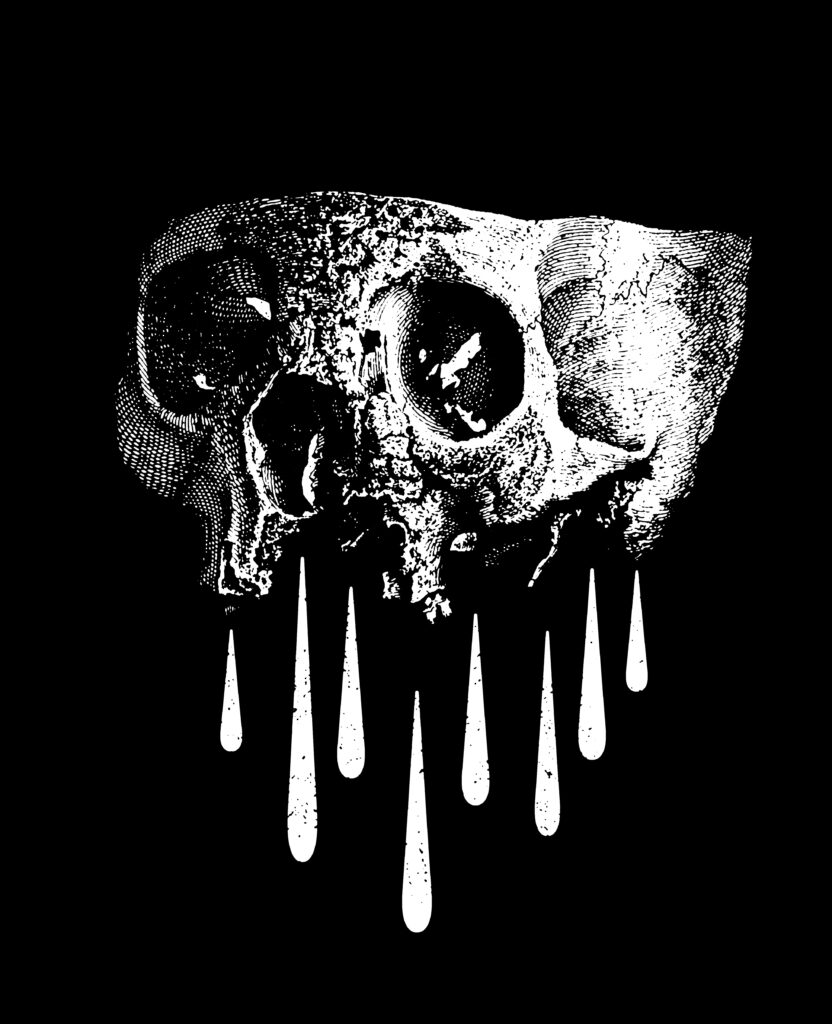
As a band, we have had the privilege of playing shows on both sides and I think that punk in the United States can be quite different from that in Mexico, from the accessibility of all-age venues for events to the support offered to one as a musician. It goes beyond this, but I suppose those are the two main factors differentiating the scenes.
One time we played at a children’s clothing store in San Luis Obispo, California. I imagine that during the day they sell baby clothes, and on certain nights they move and put everything away to host HXC and punk shows for all ages. I thought that was sick <haha>.
After playing, while at the merch table, a girl approached me to tell me how much she liked our set and gave me a Ziploc bag with vegan tamales (apparently she owned a vegan bakery). I’m not vegan, but I really enjoyed eating them, and can confirm that the tamales were good <haha>. I love that they give me things at our shows, it’s a very nice detail; like one time someone gave me a Pompompurin plush and another time, one of Pikachu <haha>.
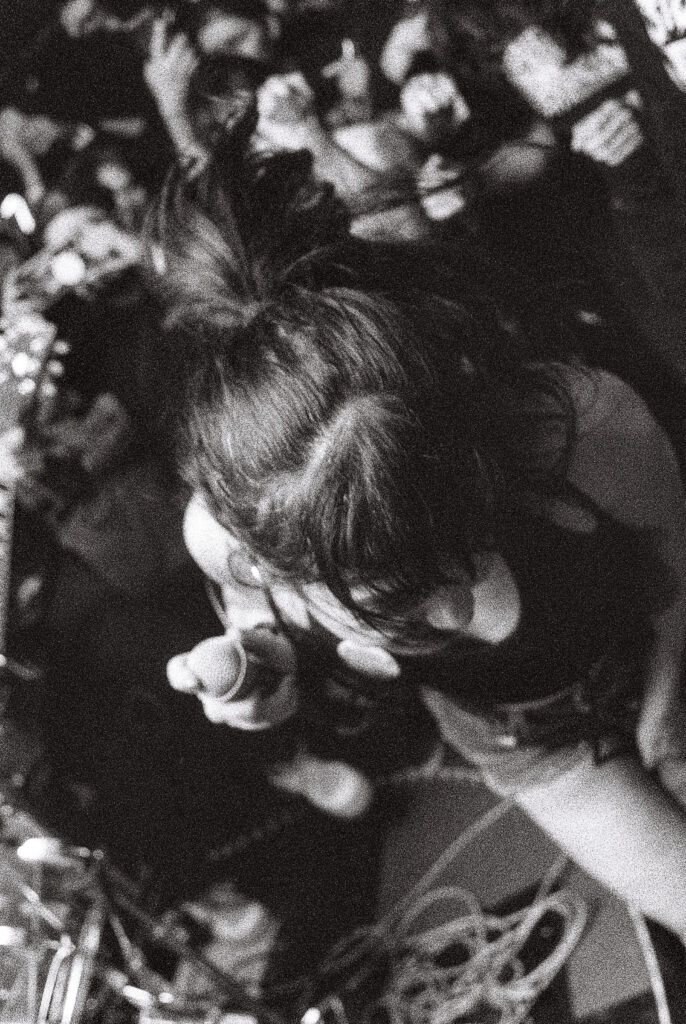
Playing music has not only been fun, but it has also given me a little more self-confidence. It has given me a platform to express myself 100% through my voice and my body. I guess I feel like it allows me to express emotions that outside of music would normally not be so well-accepted, such as aggression, sadness or despair. I like that and in a way it helps me.
Aside from this, it has also allowed me to travel to other places, share the stage with many bands, see old friends and create new friendships. It has taught me that I should be a little more assertive, to look for alternative solutions when I hit a wall and learn to do things myself before depending on someone else, as well as that it is okay to ask for help sometimes when needed.
And well, we say that we play HXC punk, but in reality it’s a mixture of many different influences by all the members of the band, from fastcore to post-punk. Almost everyone (except me) has a side musical project. David (drummer) plays in a doom band called ‘Deep Tomb’, Anibal (bassist) plays in another band called ‘Owain’, and Marco (guitarist) has a project called ‘Seda’ and was an essential member of DFMK. As for other types of art, I don’t know about the others, but I enjoy making collages and flyers, mostly for personal use. I recently enrolled in school again, for Graphic Design because I want to learn more.
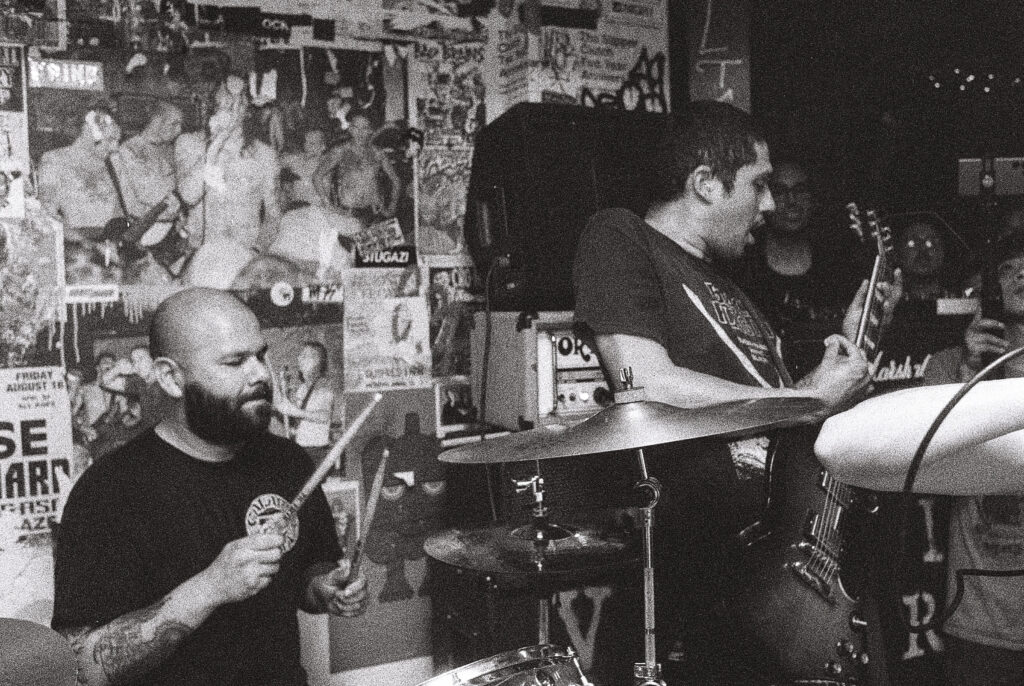
Something that impacts me a lot is seeing other vocalists perform on stage. Hardcore and punk can be very passionate and honest, and the emotions are contagious. It’s something I like a lot. I’m also inspired by other musicians, from different genres and eras, too many to list here.
Thank you for the opportunity to be part of this magazine. Thanks also to all the people who continue to support us in one way or another and who have worked with us collectively to be able to play in their cities.
-Gobi Longobardi.
Vox for VIOLENCIA.